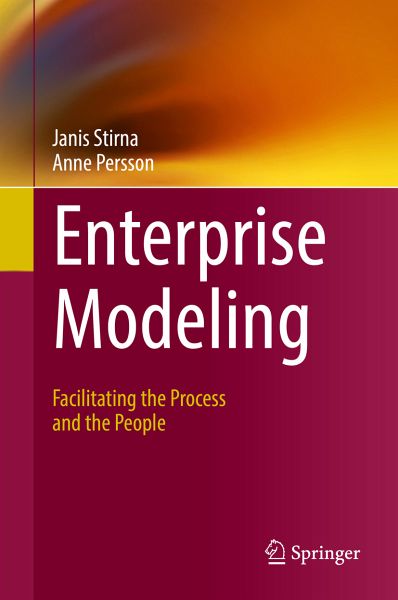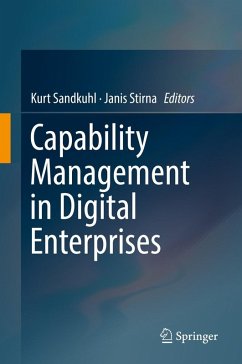
Enterprise Modeling (eBook, PDF)
Facilitating the Process and the People
Versandkostenfrei!
Sofort per Download lieferbar
48,95 €
inkl. MwSt.
Weitere Ausgaben:

PAYBACK Punkte
24 °P sammeln!
This book offers practical advice on managing enterprise modeling (EM) projects and facilitating participatory EM sessions. Modeling activities often involve groups of people, and models are created in a participatory way. Ensuring that this is done efficiently requires dedicated individuals who know how to organize modeling projects and sessions, how to manage discussions during these sessions, and what aspects influence the success and efficiency of modeling in practice. The book also includes a summary of the theoretical background to EM, although participatory modeling can also be used in ...
This book offers practical advice on managing enterprise modeling (EM) projects and facilitating participatory EM sessions. Modeling activities often involve groups of people, and models are created in a participatory way. Ensuring that this is done efficiently requires dedicated individuals who know how to organize modeling projects and sessions, how to manage discussions during these sessions, and what aspects influence the success and efficiency of modeling in practice.
The book also includes a summary of the theoretical background to EM, although participatory modeling can also be used in conjunction with other methods that are not made for EM, such as those made for goal-oriented requirements engineering and information systems analysis.
The first four chapters present an overview of enterprise modeling from various viewpoints (including methods, processes and organizational challenges), providing a background for those that need to refresh their basic knowledge. The next six chapters form the core of the book and detail the roles and competences needed in an EM project, typical stakeholder behaviors and how to handle them, tools and methods for managing participatory modeling and facilitation, and how to train modeling experts for these social aspects of modeling. Lastly, a concluding chapter presents a summary and an outlook on current research in participatory EM.
This book is intended for anybody who wants to learn more about how to facilitate participatory modeling in practice and how to set up and carry out EM projects. It does not require any in-depth knowledge about specific EM methods and tools, and can be used by students and lecturers for courses on participatory modeling, and by practitioners wanting to extend their knowledge of social and organizational topics to become an experienced facilitator and EM project manager.
Dieser Download kann aus rechtlichen Gründen nur mit Rechnungsadresse in A, B, BG, CY, CZ, D, DK, EW, E, FIN, F, GR, HR, H, IRL, I, LT, L, LR, M, NL, PL, P, R, S, SLO, SK ausgeliefert werden.












